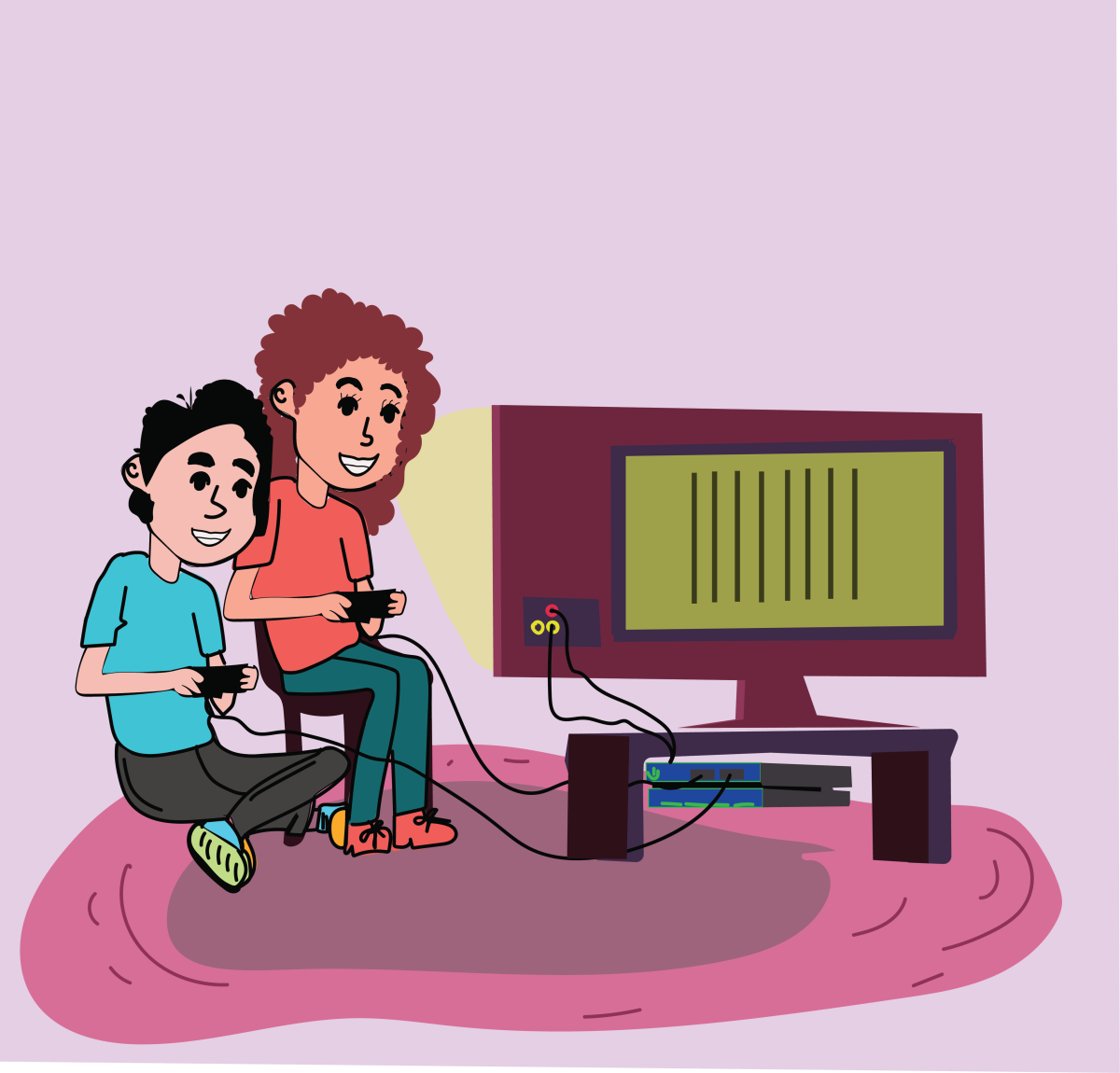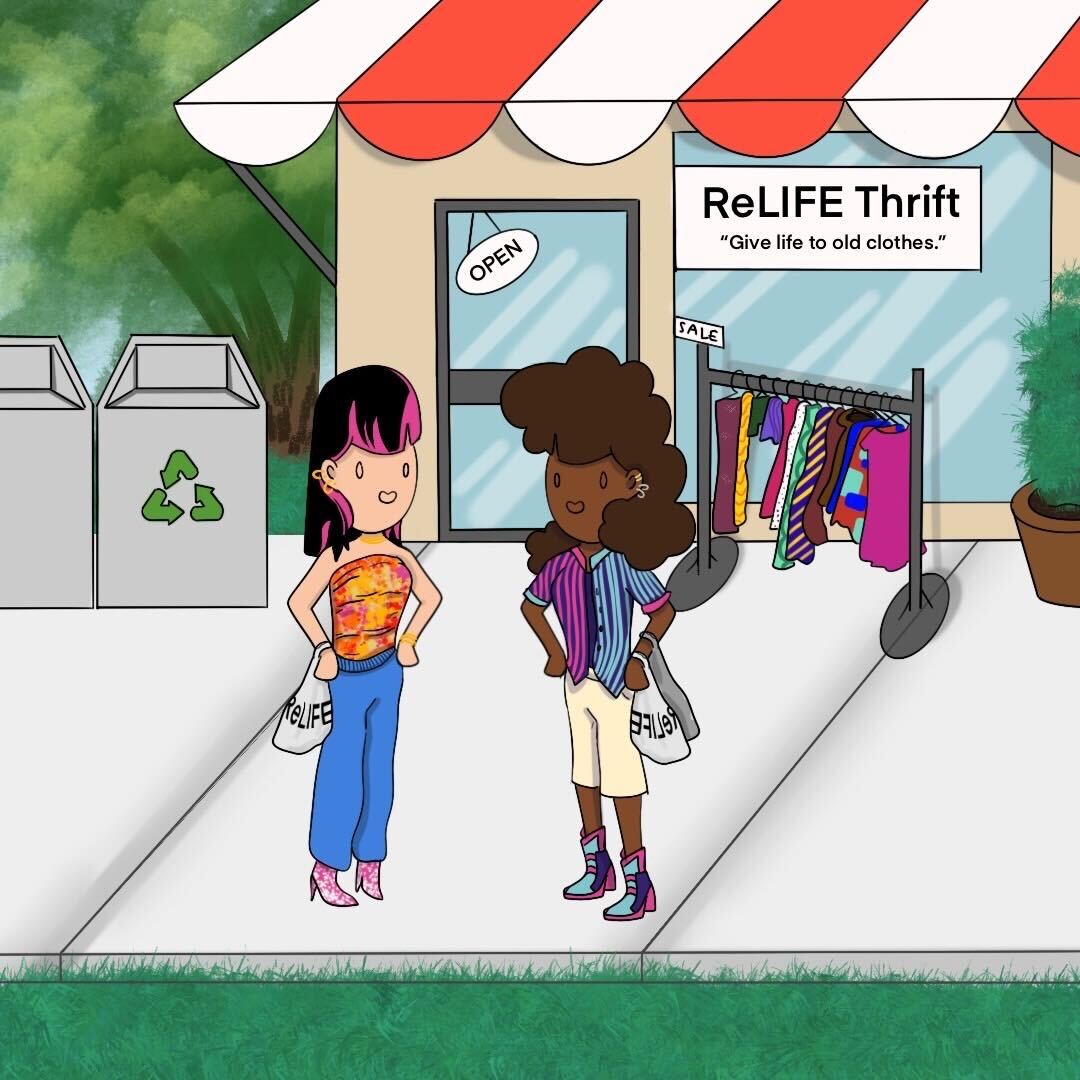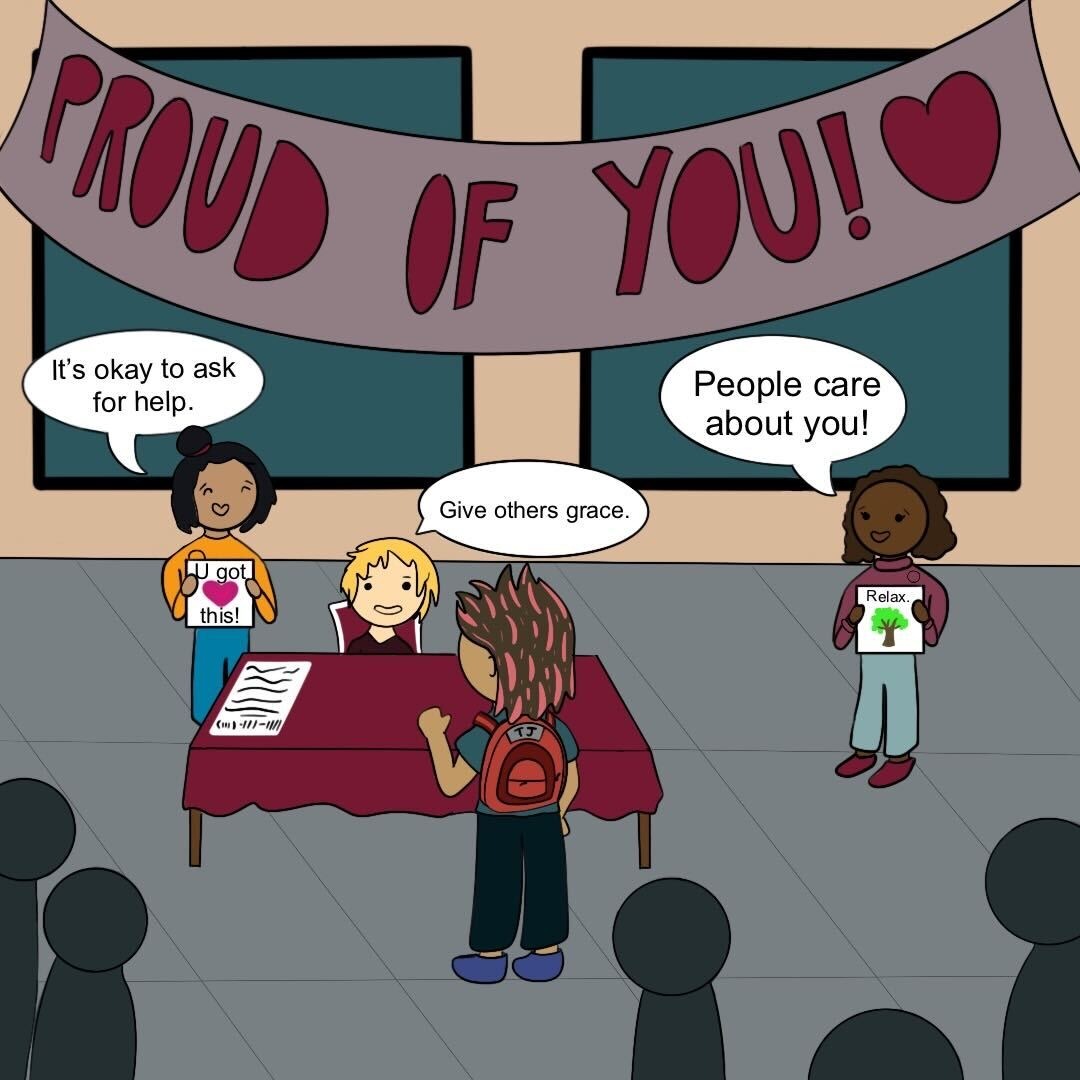Content warning: This column includes discussion of gun violence.
Whether it be a Wii performance of “Just Dance,” a nostalgic play on the Game Boy or even the first video game, “Pong,” we have all probably picked up a controller and played a video game at some point in our lives.
Despite there being millions of gamers across the world, recent mass shootings in America and the push from politicians to regulate video games have posed the possibility that video games could lead to violent behaviors.
In reality, studies reveal that there is no concrete link between video games and violent behavior. Research that does show an increase in aggression from playing video games is so minuscule it can’t even be called an increase and is rather insufficient.
Situations where there was a slight increase in violent tendencies came from young children and individuals who already expressed aggressive behaviors to begin with. Researchers found that individuals who had prior tendencies of violence before playing video games often had a history of abuse, neglect or criminal behavior.
Katie Mackey, a German and electronic media senior, has played video games since she was a child. She continues to play as an adult and spends hours playing various games, including ones that can be viewed as violent. She records her gameplay, often with friends, and posts edited videos to YouTube.
“I don’t know any gamers who are violent, except for seven-year-olds. All my adult gamer friends are pretty silly and goofy,” Mackey said. “As for me, I’m probably less violent after playing a game because if I want to express anything violently, I express it through the game. Some games, especially calming and uplifting games like ‘Stardew Valley,’ help relieve whatever emotions I have that I build up throughout the day.”
It would be irresponsible to deem that video games lead to violent behaviors if studies have only revealed that to be the case in young children and in people with a history of violent tendencies. Young children do not have the skill sets to manage their feelings which is why emotional outbursts are common among them. When kids get angry, they may express that anger physically as they haven’t learned how to properly channel that anger.
The history of mass shootings in America has also led to beliefs that video games cause violence. Gunmen, like Nikolas Cruz, who killed 17 people at Marjory Stoneman Douglas High School in Parkland, Florida, have played violent video games and claim their actions were influenced by the games.
Because of this, people believe games lead to evil behaviors and paint innocent gamers as guilty. Politicians are especially pushing for greater control over violent games such as higher age restrictions and ratings, removing games off of store shelves and delaying esports tournaments, all while ignoring the real solution, gun control.
Nick Young, a general studies senior, spends up to 15 hours a week playing video games. He’s been playing games since he was three years old and his favorite type of games are massive multiplayer online role-playing games (MMORPG), and games such as “Overwatch” and “Apex.”
“I feel like video games are not anywhere near the reason of gun violence. It’s always got something to do with the shooter’s mental health,” Young said. “There’s something wrong with them other than the fact that they play games. If video games were a cause for violence, this whole world of gamers would be out there right now doing massive violence. And are we? No, we’re not.”
Gamers like myself and others play games for fun and are not violent people. The aberrations, or the few people who are violent and play games, give us a bad reputation and wrongly label us as violent people.
“If I had a really draining day or a bad day, or if I’m super sad or angry, I’ll go on a game and it’s like stress relief. It’s calming and also an outlet. I can take my emotions out in the game because there’s no consequences in the video game. Gaming is also where I get my creative inspiration for my YouTube channel,” Mackey said.
The gaming community is friendly and accepting; it brings gamers together who find support within each other. I met two of my best friends in an online public “Fortnite” lobby. We later discovered that we lived in the same city and started to hang out in real life. This is not unlike all the friendship and creative social skills kids use, as video games are key elements in establishing friendships among adolescents.
It may be true that gamers are known to “rage quit” when they lose but it’s generally out of love and passion for the game. Gaming can also be tiring for people who play for longer periods of time. Tiredness can lead to emotion instability and toxic behaviors like trash talk, trolling and hateful actions toward other gamers including women or people of color.
“There are so few people who do nosedive a little too much into video games where they get to a point where they bring the fiction into the real world. For example, by wanting to be characters from the game,” Young said. “These people are so deep into fictional worlds that bringing it into the real-world changes who they are as people. Most gamers realize, however, that there’s a time and a place to be fictional and to be realistic.”
People may feel angry after playing video games, but that’s due to the competitive nature of most games, including physical sports. If playing video games is not a fun, distressing outlet for you, then don’t play them, but don’t unnecessarily shame or label those who do love playing.
– McKenna Bailey is a digital media innovation senior
The University Star welcomes Letters to the Editor from its readers. All submissions are reviewed and considered by the Editor-in-Chief and Opinion Editor for publication. Not all letters are guaranteed for publication.
Opinion: Video games aren’t to blame for violent behavior
McKenna Bailey, Opinion Contributor
March 30, 2022
0
Donate to The University Star
Your donation will support the student journalists of Texas State University. Your contribution will allow us to purchase equipment and cover our annual website hosting costs.
More to Discover











